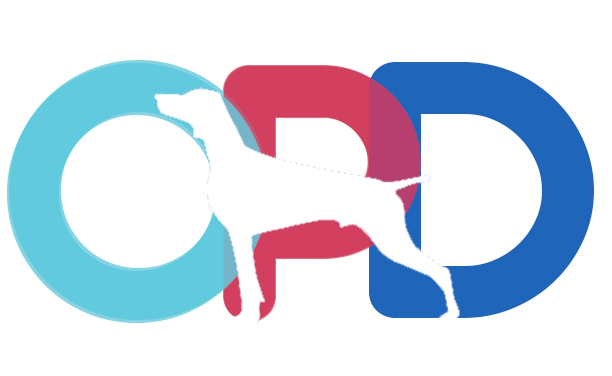Kennel cough in dogs, technically called “tracheobronchitis”, is the most common problem that affects the canine upper respiratory tract.
While it’s not a serious condition, it can cause quite a bit of discomfort for your dog, so the more effective and quicker your treatment and prevention, the better…
We’ll cover the following:
- Causes of canine kennel cough
- Symptoms
- Prevention
- Natural treatment of dog kennel cough
Causes of Kennel Cough in Dogs
Kennel cough in dogs is thought to be caused by a bacteria known as Bordetella bronchiseptica. But even though this bacteria can cause canine kennel cough, it has also been found in the respiratory tract of healthy dogs and cats! This means that it can’t cause kennel cough on its own.
So what triggers kennel cough after a dog has acquired this bacteria?
First, the immune system must be weakened. A virus is often the perfect accomplice to Bordatella bronchiseptica’s nasty intentions, especially the parainfluenza virus or canine adenovirus.
But even this bacteria-virus one-two punch isn’t enough! Can you guess what the third and final ingredient is? Here’s a hint… it can come from the same place as the name of the illness…
The final factor is… stress! A dog must be in a stressed situation in order for canine kennel cough to set in.
Not surprisingly, it occurs most in places where a lot of dogs are in close contact… the perfect setting for all three factors to come together. Boarding kennels, veterinary offices or hospitals, animal shelters, the groomer and pet shops are all common crime scenes.
Bordatella bronchiseptica is contagious to other mammal species as well, including humans. But in my 30 years of experience as a veterinarian, it is curious to note that neither veterinarians nor veterinary technicians I have practiced with seem to have a higher incidence of this infection, and this group has certainly been exposed more than the average person!
Symptoms of Kennel Cough in Dogs
It takes about 3 to 7 days after exposure for a dog to start showing symptoms of canine kennel cough. Dr. Pitcairn describes it as “a dry, hacking, awful-sounding cough that ends with a gagging or retching.” It is sometimes accompanied by a clear, watery discharge from the eyes and nose, and sometimes a decrease in appetite.
Fortunately, the condition is not serious and should last no more than two weeks or so as long as your dog is otherwise healthy.
Prevention of Kennel Cough in Dogs
Since stress and exposure to the viruses and bacteria mentioned above are the primary causes of canine kennel cough, the most effective prevention technique is to use a pet sitter instead of a boarding kennel when you need someone to watch your dog. This will reduce both stress and exposure to the infectious bacteria and viruses.
In addition, many kennels require dogs to receive kennel cough vaccination prior to their stay. Working with pet sitters who don’t have this requirement will free your dog from the potential harmful side effects of the vaccine.
Natural Treatment of Kennel Cough in Dogs
First, if you’re on the fence about the kennel cough vaccine, consider this: according to Current Veterinary Therapy XIV…
“B. bronchiseptica has been isolated from the nasal cavity of vaccinated animals, suggesting that vaccination does not necessarily prevent infection”
Conventional therapy usually includes antibiotics and cough suppressants.
In some cases, there can be side effects to conventional drugs and because the disease is viral in nature, a holistic approach is preferred.
The natural, holistic approach to treating kennel cough in dogs will allow the disease to “run its course” in the quickest and healthiest way possible…
- Reduce stress – as a holistic veterinarian, ‘coughing’ is just considered to be one symptom. To treat just the cough is not treating the whole patient. Reducing stress helps with the mental and emotional aspects of healing.
- Steam – Whether conventional or holistic, the most effective treatment of kennel cough in dogs is to place the affected dog in a steam-filled room or use a vaporizer for about 1 hour two times daily. Keeping the dog isolated is also important since kennel cough is a contagious disease to other dogs, cats and humans.
- Rest – The more the dog coughs, the more inflamed the tracheal mucosa becomes, and more inflammation triggers more coughing. Therefore, the affected dog must be kept quiet and rested for at least two weeks. Keeping exercise and excitement to a minimum (including no long walks) will promote quieter respiration and faster healing of the mucous membranes.
- Fluids – Providing plenty of fluids, fresh water and chicken or beef broth will help to keep the mucous membranes hydrated. NO DRY FOOD (see our 10 Best Dog Food Options page for suggestions). It may also help to soften canned foods with water or broth. Offering only liquids for a day or two when symptoms first start may also help decrease irritation to the throat.
- Vitamin supplementation – Vitamin E for dogs and vitamin C for dogs may also assist the healing process.
- Herbal treatment with herbal cough syrups that contain wild cherry bark, licorice, comfrey root, coltsfoot, mullein, slippery elm or horehound.
- Homeopathic treatment – many pet owners claim to have observed relief and quicker recuperation after using a homeopathic remedy to improve coughing and sneezing, clear the chest and support the immune system. KC-Defense from PetAlive is a good option.
If the problem becomes chronic, it is especially advised to follow the holistic path since conventional medicine does not have much to offer in this situation.
Last but not least, following the Organic-pet-Digest recommendations for a healthy dog food diet, a minimal dog vaccination schedule, good dog dental hygiene, plenty of exercise and lots of love will give your dog the best chance of remaining kennel-cough-free!
Do you believe in holistic pet care? If so, please tell your friends about us. Thank you for supporting our efforts!
